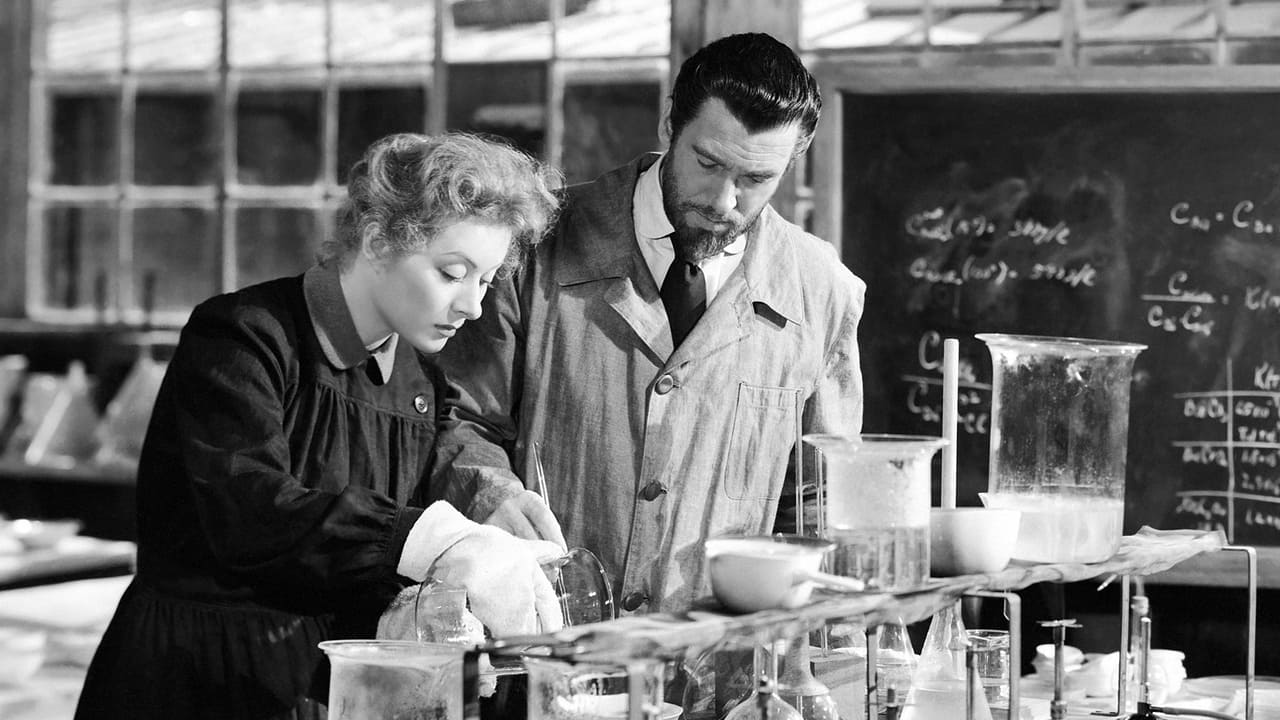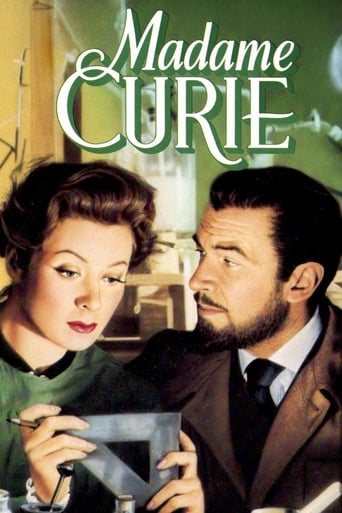



Too many fans seem to be blown away
one of my absolute favorites!
Through painfully honest and emotional moments, the movie becomes irresistibly relatable
View MoreIt's simply great fun, a winsome film and an occasionally over-the-top luxury fantasy that never flags.
View MoreWhat can I say. She was a giant of science. The only person to win two Nobel Prizes in different science subjects (physics and chemistry.) But for all that this film made me cry a little bit (ruffy tuffy biker ex sea-farers don't cry, although they might leak a bit from the eyes, my excuse and I'm sticking to it.) Showed the long arduous task of scientific exploration and I have to say, Hollywood were at their best when making films like this. And being honest rather than sensational.Even if you have no interest in science, the human story alone is worth seeing. But the more you know about Marie Curie the more you realise how incredible she was, and how she had to fight against incredible discrimination against her purely on the basis of her gender. Makes you realise how stupid that such feelings really are.
View MoreThis is the biography of the Curies, who discovered radium. This one gets off to a fine start as the socially awkward scientist Pidgeon finds himself drawn to Garson, a student with great scientific aptitude. Having worked with each other so often, the two stars have terrific chemistry (and physics?) and are quite believable in the roles of the famed scientists. Then comes the experimentation that lead to the discovery of radium and the concept of radioactivity. This is fascinating stuff but does not make for great cinema, causing things to bog down in the latter parts of the film. Still, it's a handsome production that's well worth watching.
View MoreThe story of Marie Curie who at the beginning of the film is a Polish student at the Sorbonne who is given the opportunity for working with Dr. Pierre Curie on his experiments when the two learn of a fellow professor who has found a rock that seems to give off its own light and energy despite being deep underground for centuries. The two find that it must contain a new element, more radioactive that uranium. The two are able to isolate the new element despite the hardships of inadequate lab equipment, the birth of a young daughter, their colleagues questioning their work, and numerous failed experiments. Excellent film dealing with the hard work of the Curies and the realization that hard work and commitment will pay off (nice ideal during the war years). Garson and Pidgeon build on the great chemistry the two had in Mrs. Miniver, and are helped by an excellent supporting cast. The screenplay and LeRoy's direction do each other perfect justice by combining the romance and drama superbly. Rating, 8.
View MoreFollowing their success as a romantic pairing in "Mrs. Miniver", the wartime morale-booster, Greer Garson and Walter Pidgeon were twice more placed in romantic vehicles by MGM, this being the more successful of the two. In the late nineteenth century, a beautiful young Polish woman enrols at the Sorbonne. Mademoiselle Sklodowska is a brilliant physicist, and before long she has been attached to Doctor Curie, the shy boffin with the large laboratory. One day, the lives of both scientists are profoundly affected when a colleague shows them the strange radiant properties of certain rocks. Marie and Pierre decide to devote their careers to understanding how minerals can cause changes in a photographic plate. Mervyn LeRoy ("I Am A Fugitive", "Gold Diggers", etc) directed this conservative little biopic with quiet professionalism. If the film never truly hits the heights, it has to be said that it is a near flawless piece of workmanship. The writers, Osborne and Rameau, produced a literate and well-paced screenplay, and the incipient romance between the two shy scientists is depicted with delicacy and gentle humour. Doctor Curie gradually falls for his gifted student. The graduation ceremony is cleverly depicted as a crowded sell-out, which the absent-minded doctor almost misses. We hear, but do not see, Marie receive the first prize. The critical point in the relationship comes when Pierre invites Marie to spend a weekend at his parents' country villa. Marie retires to bed, and the agitated Pierre spends the night pacing up and down in his room, not entirely sure what is bothering him. When he finally resolves to propose marriage, we see him ascend the stairs walking away from the camera: this emphasises his nervousness, because he is moving 'out there'. After Marie accepts, Pierre is shot from the reverse angle going back down the stairs - now he 'belongs' to Marie, and we see him from her point of view. The scenes which follow are deeply attractive. The studio sets of the villa garden and Grenoble are sumptuous, and the location shots of the honeymoon absolutely idyllic. The hard labour back in Paris will seem all the grimmer after this interlude. The film is almost an hour old before Marie embarks on her discovery of radium. The experiment to separate uranium and thorium is lit from below, resembling the dramatic paintings of Joseph Wright of Derby. Infinite patience was required during the four years of toil which culminated in the preparation of radium, and the film conveys a vivid sense of the Curies' dedication. The new century begins with the gentle glow of the isolated radium sample, a beacon heralding the wonders of the dawning age. Interesting side issues include the appearance of a very young Robert Walker as David, the lab assistant, and an equally callow Van Johnson as the cub reporter. Some lines in the script were perfectly innocent in their day, but raise a titter now. Telling Marie how much she will like his father, Pierre goes on to add, "And my mother's quite gay - you'll enjoy them both!" When Pierre leaves the house in pouring rain on some purpose of his own, Marie calls after him, "Don't forget your rubbers!" Marie's reaction to the news of the accident is well done, but her final speech to the Faculty of Science fails to inspire. It is her work that is uplifting, not her oratory, and the film puts this across.Verdict - Solid, well-made biopic which doesn't quite ignite.
View More